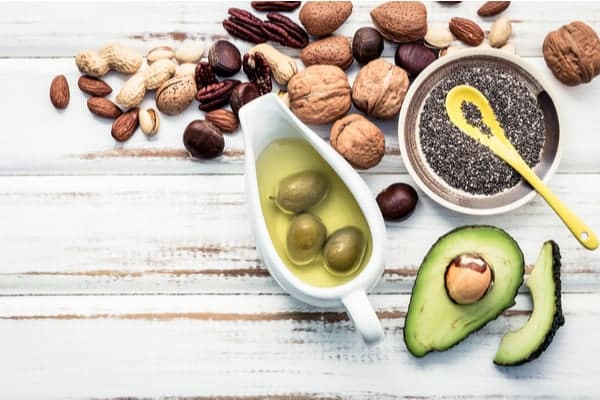More and more people are suffering from Multiple Sclerosis, commonly referred to as MS. The autoimmune disease that negatively impacts the central nervous system, now affects more than 400,000 people in the United States alone, and about 2.5 million people around the globe. This, of course, is the number of people diagnosed and living with MS. But there are countless people joining online communities across the globe to share their symptoms, in fear of living a life undiagnosed or untreated. But there’s a solution that may help fight off the symptoms associated with MS—and it’s in the form of holistic nutrition and medicine.
According to the National Multiple Sclerosis Society, complementary and alternative medicines are gaining momentum for those suffering with MS. “Complementary and alternative medicine (CAM) includes a wide variety of interventions — from diets and supplements to meditation and [Tai] Chi — which come from many different disciplines and traditions. Most are considered to be outside the realm of conventional medicine, although others, including vitamin D, exercise, acupuncture and cooling strategies, for example, are establishing their role in comprehensive care through scientific study and clinical trials.”
Learn How to Become a Certified Holistic Health Coach Online

Holistic treatment for Multiple Sclerosis: 4 remedies worth trying
Increase your vitamin intake
The majority of people suffering from MS are vitamin D deficient. One way to combat this deficiency is to up your patients’ vitamin intake. Research shows that those with low levels of vitamin D may be at risk for a more rapid progression of MS and more susceptible to exacerbations. For women suffering with MS, urinary tract infections are a common occurrence. To decrease the symptoms associated with MS such as UTIs, consider upping your patients’ antioxidant-rich cranberry supplement intake.
Acupuncture may help to relieve symptoms
The staff at National Multiple Sclerosis Society continues: “Acupuncture may provide relief for some MS-related symptoms, including pain, spasticity, numbness and tingling, bladder problems, and depression.” Please note, however, that acupuncture may only provide minor relief and shouldn’t be replaced by other medical treatments.
Mind-body therapy
Practicing meditation and/or yoga may help alleviate common symptoms such as fatigue, stress, muscle stiffness and stability. While mind-body therapy may help to reduce symptoms, the gentler the practice, the better. In other words, steer clear of challenging mind-body exercises such as Bikram yoga.
Maintain a healthy lifestyle
“In MS, the immune system attacks the central nervous system, blocking or interrupting nerve signals and causing symptoms like fatigue, numbness, movement problems, bladder and bowel dysfunction, and vision problems,” writes the staff at Healthline. At the end of the day, we are what we eat and a healthy diet may help to keep your patients’ harsh symptoms in check. Don’t forget to advise against foods that may worsen the symptoms of MS, such as gluten, meat, eggs (except egg whites), dairy, refined sugars, saturated fats and diet beverages, and to keep alcohol to a minimum.
Interested in learning more about how you can help others through holistic medicine and nutrition? Learn more about our Holistic Nutrition certification program. It’s not only going to give you the means to help people, but it’s an opportunity to start a new, fulfilling career path.
If you have a passion for yoga, you can become a yoga instructor by completing a certification program with a reputable organization like AFPA and gaining the skills and knowledge necessary to lead safe and effective yoga classes.




